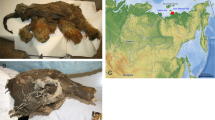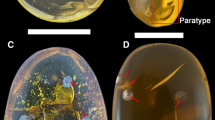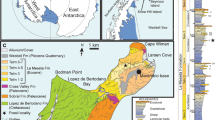Abstract
THE Indian Gondwana formations are continental sediments which range in age from early Permian to about the middle of the Cretaceous. They have yielded a number of tetrapod faunas, mostly from Triassic and early Jurassic formations. Peninsular outcrops from Permian beds have yielded two solitary amphibians, Gondwanosaurus and Rhinesuchus, while a Lower Permian amphibian fauna has been found in Kashmir (Archegosaurus, Actinodon and Lysipterygium). There are no records of Permian reptiles from any part of the Indian subcontinent and, indeed, few Permian reptile faunas are known from any part of the world. This communication describes the discovery of a reptilian fauna from the Indian Permian.
This is a preview of subscription content, access via your institution
Access options
Subscribe to this journal
Receive 51 print issues and online access
$199.00 per year
only $3.90 per issue
Buy this article
- Purchase on Springer Link
- Instant access to full article PDF
Prices may be subject to local taxes which are calculated during checkout
Similar content being viewed by others
References
Cox, B., Amer. Mus. Novitates, No. 2171 (1964).
Hotton III, Nicholas, in Essays in Palaeontology and Stratigraphy, Univ. Kansas Dept. Geol. Sp. Publ. 2, 390 (1967).
Taquet, Ph., CR Acad. Sci., Ser. D, 268, 779 (1969).
Author information
Authors and Affiliations
Rights and permissions
About this article
Cite this article
KUTTY, T. Permian Reptilian Fauna from India. Nature 237, 462–463 (1972). https://doi.org/10.1038/237462a0
Received:
Issue Date:
DOI: https://doi.org/10.1038/237462a0
This article is cited by
-
A new captorhinid reptile, Gansurhinus qingtoushanensis, gen. et sp. nov., from the Permian of China
Naturwissenschaften (2011)
-
The last “pelycosaur”: a varanopid synapsid from the Pristerognathus Assemblage Zone, Middle Permian of South Africa
Naturwissenschaften (2011)
Comments
By submitting a comment you agree to abide by our Terms and Community Guidelines. If you find something abusive or that does not comply with our terms or guidelines please flag it as inappropriate.



